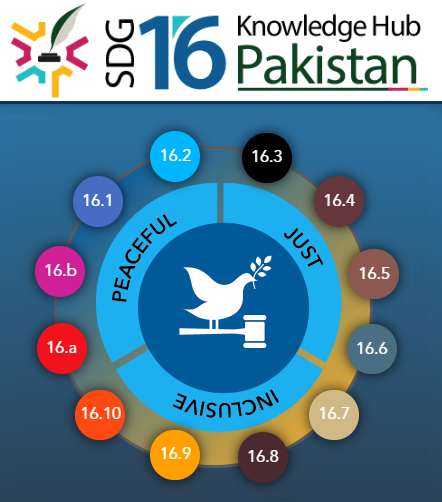

International Day for Judicial Well-being: A Global Call for Action (4 Mar, 2025)
Pakistan Ranks 129 out of 142 in the World Justice Project Rule of Law Index (26 Oct, 2024)
2024 Trafficking in Persons Report: Pakistan (24 June, 2024)
Pakistan ranks second-last in WEF Global Gender Gap Report 2024 (7 Mar, 2025)
Law proposes rapist’s castration with consent

Mon, January 11, 2021
ISLAMABAD: The proposed anti-rape law suggests castration of a habitual offender of rape with the consent of the convict.
A meeting of the cabinet committee on legislative cases, chaired by federal Law Minister Dr Farogh Naseem, approved the Anti-Rape (Investigation and Trial) Ordinance 2020 and the Criminal Law (Amendment) Ordinance 2020 on Thursday. The ordinances have already been approved in principle by the federal cabinet.
In respect of first or repeated offenders, the concept of chemical castration has been introduced mainly as a form of rehabilitation, and subject to consent of the convict.
According to the law minister, it is mandatory under the international law to take consent of the convict before castrating him.
He said in case chemical castration was ordered without taking consent, the convict might challenge this before a court of law.
Answering a question, he said if a convict would not agree to castration, he would be dealt with in accordance with the Pakistan Penal Code (PPC) under which the court might award him death sentence, life imprisonment or 25-year jail term.
However, Mr Naseem made it clear that it was up to the court to decide the punishment. The judge may order chemical castration or the punishment under the PPC.
He further said that the court might order castration for a limited period or lifetime.
The PTI-led government is all set to promulgate the two ordinances to set up special courts for speedy trial of rape cases.
Three members of the committee — Parliamentary Secretary for Law Barrister Maleeka Bokhari, Law Secretary Raja Naeem Akbar and consultant Barrister Ambreen Abbasi — have finalised the two ordinances.
These two legislations are in line with the constitutional guarantees and international treaties. The proposed laws provide mechanisms to curb the atrocious incidents of rape and sexual abuse of women and children.
Salient features of the Anti-Rape (Investigation and Trial) Ordinance, 2020 include establishment of special courts; creation of anti-rape crisis cells to be headed by commissioners or deputy commissioners, who will ensure prompt registration of the FIR, medical examination and forensic analysis of evidence etc; abolition of inhumane and degrading two-finger virginity test for rape victims during medico-legal examination; putting a bar on cross-examination of rape victim by accused, thereby only allowing judge and accused’s lawyers to do so; in-camera trials; protection for victim and witnesses; use of modern devices during investigation and trial; legal assistance to victims through the Legal Aid and Justice Authority; appointment of independent support advisers to provide support to victims; appointment of special prosecutors for special courts; investigation by JITs headed by district police officers; creation of a special committee on pro bono basis to ensure overall implementation of the law; on the recommendation of the special committee issuance of medico-legal examination, investigation and prosecution guidelines, based on latest modern techniques and devices and maintenance of data of sex offenders through Nadra. Under the proposed law a public reporting mechanism will be introduced since the nation has called for fighting the menace of sexual crimes against women and children.
The Criminal Law (Amendment) Ordinance, 2020 substitutes the existing section 375 of the PPC with a new provision to provide a new definition of rape, extending to females of all ages and male victims under the age of 18 years. In addition to rape, the offence of gang rape has also been covered in the proposed law.
Published in Dawn, November 27th, 2020
Copyright © 2026 pjn.org.pk








